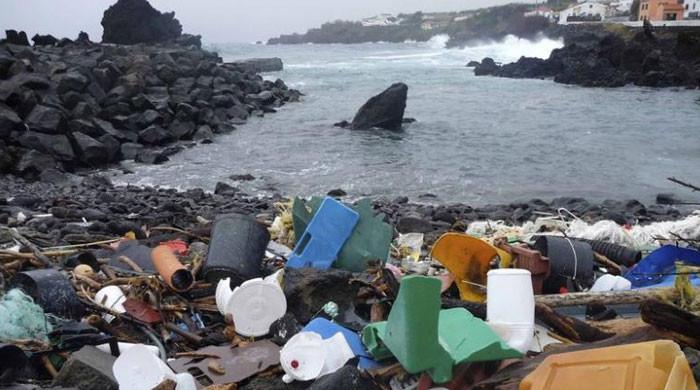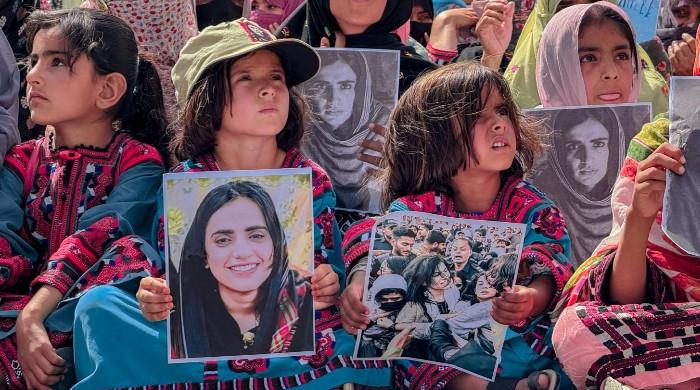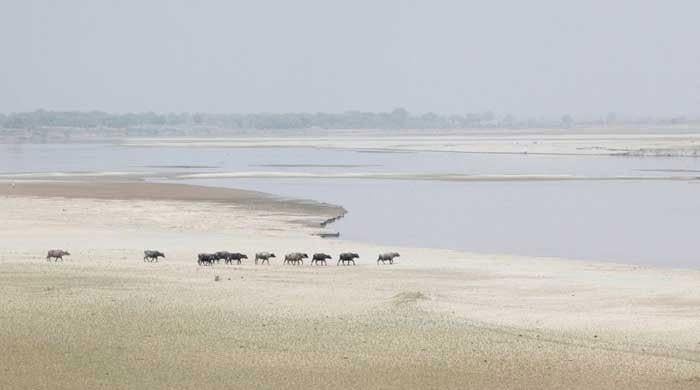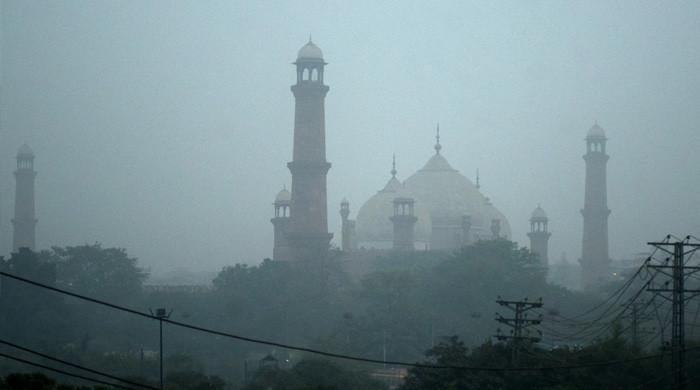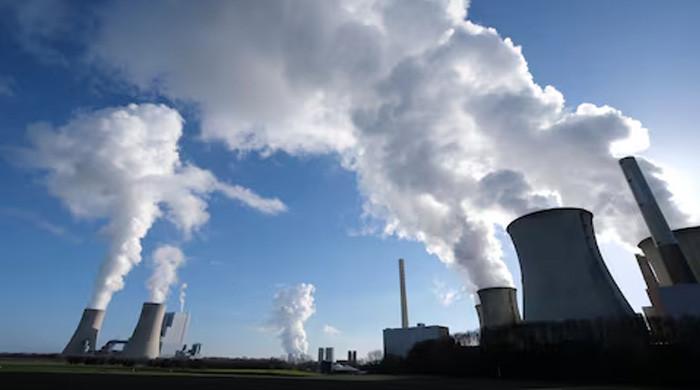Moving beyond the IMF
Shehbaz claimed it hurt him whenever Pakistan had to approach World Bank and other institutions for loans
July 19, 2024
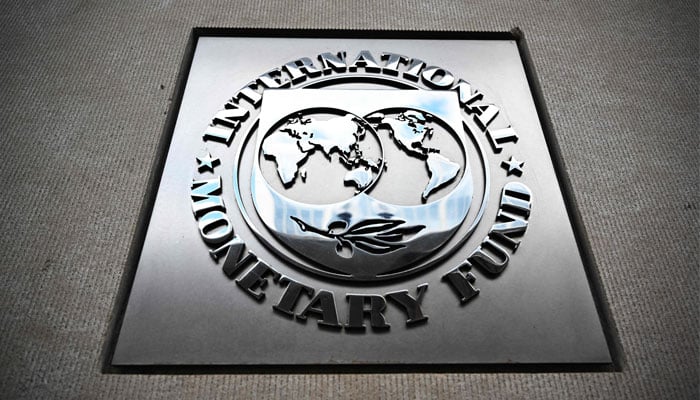
Prime Minister Shehbaz Sharif seems to have a dogged determination to get rid of external loans and the programmes of the International Monetary Fund (IMF). The prime minister doesn't want the country to knock at the door of the lender of last resort that has lent billions of dollars to Pakistan over the years with stringent strings that many believe have crippled the economy besides creating immense hardships for ordinary Pakistanis.
Addressing a meeting at the headquarters of the Federal Board of Revenue on Saturday, the prime minister said, "If we want to get rid of loans, we need to consider this IMF programme as the final one. Now is the time; it is our responsibility to act speedily and work tirelessly. Only then will this be the final IMF programme in this country."
Shehbaz claimed that it hurt him whenever Pakistan had to approach the World Bank and other institutions for loans. "We collect billions, trillions and we're still going to the World Bank and others. A country cannot run like this."
The statement comes hours after the announcement by the Fund stating that the IMF and Pakistan had reached a three-year $7 billion aid package deal, giving much-needed respite to the nation besides triggering a ripple of excitement among the stock exchange brokers who believe it augurs well for the faltering economy that is struggling to meet billions of dollars to bridge the budget deficit. It is claimed that the programme, which needs to be approved by the IMF's Executive Board, would enable Pakistan to "cement macroeconomic stability and create conditions for stronger, more inclusive and resilient growth. The country would have to implement drastic reforms which might further burden ordinary Pakistanis."
Many take the claims of the IMF with a pinch of salt arguing growth and the Fund's conditions are two diametrically opposite phenomena. Anti-austerity economists assert that the history of global monetary institutions shows that wherever they go, they wreak havoc with the economies of states that borrow money from them.
The strings of the IMF appear very benign. They are described as reforms to mask their lethal impacts. But behind these palatable terminologies lies the ruthless rule of capital and hegemony of powerful states that wish to see deindustrialisation in the Global South to ensure consumption of their products in developing states instead of wishing to see any manufacturing or industrialisation there.
Many call it a form of neo-colonialism whereby former colonialists don't come with guns as was the case in the past but enter the Global South through aid or loan packages of these monetary institutions. Given the structural imbalance in the global economy, it is very difficult for developing countries to reject the stringent strings of the IMF or market fundamentalism.
Those who dared challenge such dominance of the institutions met a terrible fate. Any leader in the Global South who tried to follow an independent economic policy was either deposed or decimated. Former Iranian prime minister Mohammad Musadegh, former leader of Guatemala Jacobo Arbenz and ex-Chilean president Salvador Allende are just some of the examples.
Leaders who could not be eliminated were punished differently. For instance, Cuba was slapped with terrible sanctions which have been there since 1962. It is difficult to fully assess the economic damages that may have been caused by these sanctions but the UN estimates that the embargo has cost Cuba about $130 billion in lost revenues. Until the late 1980s, the Soviet Union helped Cuba survive by purchasing much of the island's sugar exports at higher-than-market rates. The embargos have also negatively affected Cuba's healthcare system by blocking imports of life-saving drugs and medical equipment patented in the US.
Like Cuba, Venezuela also sought to oppose the neoliberal reforms of monetary institutions. The financiers of these institutions have relentlessly aimed to destroy the Venezuelan economy by imposing crippling sanctions. Venezuelan economist Francisco Rodríguez believes that a first set of financial sanctions in 2017 led to a sharp reduction in oil production — the country's main revenue source — resulting in an estimated income loss of nearly $15 billion and hindering economic recovery. Subsequent measures, including January 2019 sanctions on oil exports to the US, caused an additional income loss of at least $7.5 billion and contributed to the deaths of 40,000 Venezuelans.
It is not just one or two Latin American states but the entire continent that has been economically devastated by the policies of global monetary institutions. According to Alexander Main, director of international policy at the Center for Economic and Policy Research in Washington, the debt crises of the 1980s turned the continent into a vast laboratory for US and IMF-driven neoliberal "structural adjustments."
These adjustments involved deregulation, privatisation, and cuts to public services. Main claims that these adjustments contributed to the abandonment of a uniquely Latin American model of development that promoted extensive state intervention in the economy through "import substitution industrialisation" — protectionist measures that bolstered national industries. Main says these measures were reviled by free —market advocates and the mainstream international financial press, but they had a strong record of success, leading to per capita income growth of 91.5% between 1960 and 1980, which prompted vast improvements in living standards for most Latin Americans.
In contrast, between 1980 and 2000, per capita growth in the region increased by only 5.7%. Poverty reduction stagnated, and inequality rose. Supply-side economics clearly did not work for most Latin Americans, who, by the end of the 1990s, began electing the Pink Tide of progressive governments that rejected the so-called Washington Consensus.
Those sceptical of these claims should logically assess the terms and conditions set by the IMF and consider their impacts. For example, whenever these monetary institutions are involved, they typically require states to raise energy prices, increase interest rates, abolish subsidies for local industries, and avoid imposing restrictions on imports.
This means that if a businessman wants to expand his/her industry by taking loans from banks and importing machinery, s/he will reconsider amidst rising interest rates. Skyrocketing energy prices will not only deter new industrialists from planning to set up industries but will also force existing businessmen to shut down manufacturing units or reduce their operations. Unrestricted imports will compel the government to spend much-needed foreign reserves on luxuries for the elite, who consider it beneath their dignity to use local products.
The much-vaunted economic growth promised by the IMF has never materialised in Pakistan. Between December 1958 and October 2022, Pakistan approached the Fund 22 times, yet real economic growth remains elusive. From 1960 to 2024, the country witnessed economic growth above 7.0% only ten times, occasionally exceeding 10%.
Therefore, it is crucial for the country to drastically reduce non-development expenditures, stop providing over $17 billion in annual subsidies to the elite, restrict imports of luxury items, and impose taxes on real estate based on market value. This includes heavy taxes on the palatial estates of Jati Umra, the fiefdoms of the Bhutto family, and the fort of Bani Gala. Additionally, MNA development funds and lavish spending on the devolved federal ministries, worth over Rs400 billion, must be curtailed. These measures could help the country break free from IMF dependence.
The writer is a freelance journalist who can be reached at: [email protected]
Disclaimer: The viewpoints expressed in this piece are the writer's own and don't necessarily reflect Geo.tv's editorial policy.
Originally published in The News




